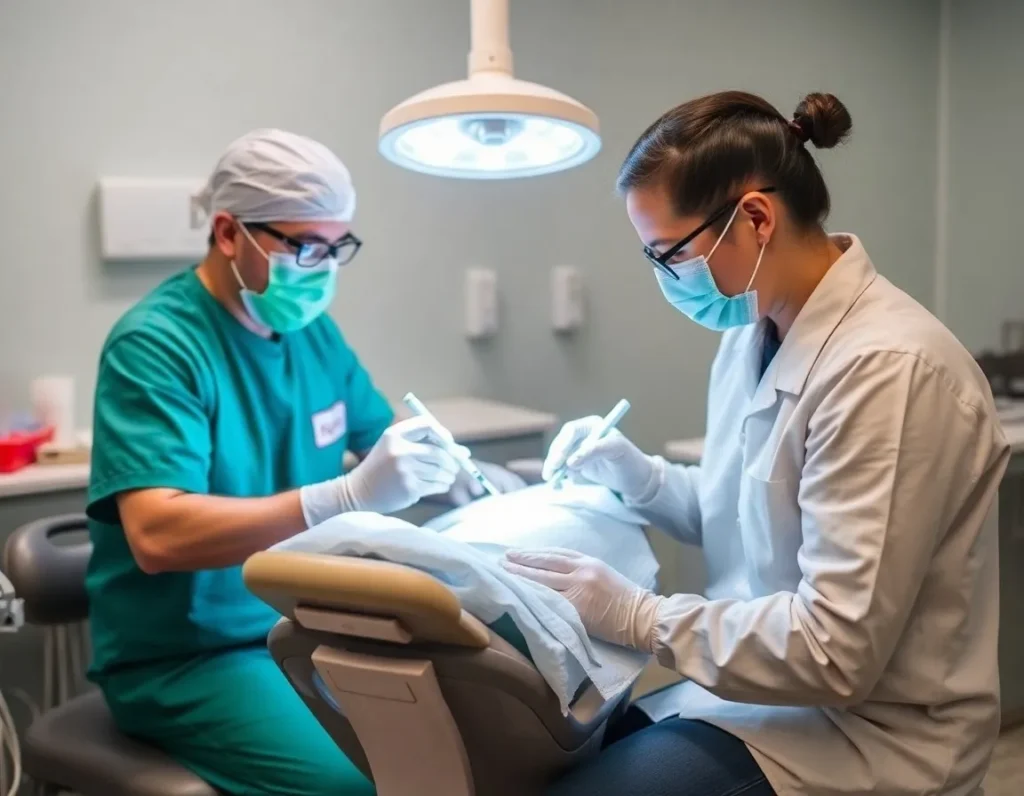Dental emergencies can strike at any time, causing severe pain and discomfort. Recognising these issues and knowing when to seek immediate professional help is crucial for maintaining oral health and preventing further complications. In this comprehensive guide, we’ll explore the most common emergency dental problems and provide insights on how to manage them.
For immediate assistance with dental emergencies in Blackpool, contact Arc Dental Surgery. Their experienced team is equipped to handle a wide range of dental emergencies, providing prompt, professional care when you need it most.
Severe Toothache
A severe toothache is one of the most frequent reasons people seek emergency dental care. This intense pain can be caused by various factors:
Tooth Decay: Advanced decay can reach the tooth’s nerve, causing significant pain.
Dental Abscess: An infection at the root of a tooth or between the gum and tooth can lead to severe, throbbing pain.
Cracked or Fractured Tooth: A crack or fracture extending to the tooth’s root can cause sharp pain, especially when biting or chewing.
If you’re experiencing persistent, severe tooth pain, it’s essential to seek professional help promptly. In the meantime, rinse your mouth with warm saltwater and apply a cold compress to the outside of your cheek to help manage the pain.
Knocked-Out Tooth
A knocked-out tooth is a serious dental emergency that requires immediate attention. Quick action can increase the chances of saving the tooth:
- Handle the tooth by the crown, not the root.
- Rinse it gently with milk or saline solution if it’s dirty.
- Try to reinsert the tooth into its socket if possible.
- If reinsertion isn’t possible, keep the tooth moist in milk or saliva.
- Seek emergency dental care within 30 minutes for the best chance of saving the tooth.
Broken or Chipped Tooth
A broken or chipped tooth can occur due to trauma or biting on hard objects. The severity can range from a small chip to a significant fracture:
Minor Chips: These may not cause pain but can have sharp edges that irritate the tongue or cheek.
Large Breaks: These can expose the tooth’s inner layers, causing pain and sensitivity.
For minor chips, covering the affected area with dental wax can provide temporary relief. For larger breaks, seek emergency dental care to prevent infection and further damage.
Lost Filling or Crown
Losing a filling or crown can expose the sensitive inner parts of the tooth, leading to pain and increased risk of decay:
- If you’ve lost a filling, use temporary filling material from a pharmacy to cover the cavity.
- For a lost crown, try to reattach it using dental cement or toothpaste temporarily.
- Avoid chewing on that side of your mouth and seek dental care as soon as possible.
Dental Abscess
A dental abscess is a severe infection that can cause intense pain, swelling, and fever. It requires immediate attention to prevent the infection from spreading:
Symptoms: Severe, throbbing pain, swelling in the face or cheek, fever, and a bad taste in the mouth.
Management: Rinse with warm salt water to draw the pus toward the surface and relieve pressure. Seek emergency dental care immediately.
Soft Tissue Injuries
Injuries to the soft tissues of the mouth, such as cuts or lacerations to the gums, tongue, or cheeks, can be painful and may bleed profusely:
- Rinse your mouth with warm saltwater.
- Apply pressure with a clean cloth or gauze to stop bleeding.
- Use a cold compress on the outside of the cheek to reduce swelling.
- If bleeding doesn’t stop after 15 minutes, seek emergency care.
Orthodontic Emergencies
For those with braces or other orthodontic appliances, emergencies can include:
Broken Wires: Cover the sharp end with orthodontic wax or a small cotton ball.
Loose Brackets: Temporarily reattach with orthodontic wax if possible.
Protruding Wires: Try to push the wire into a more comfortable position using a pencil eraser.
While these measures can provide temporary relief, it’s important to contact your orthodontist for proper treatment.
Wisdom Tooth Pain
Impacted or emerging wisdom teeth can cause severe pain and swelling:
Symptoms: Pain at the back of the mouth, swelling in the gums or jaw, difficulty opening the mouth.
Management: Rinse with warm salt water, use over-the-counter pain relievers, and apply a cold compress to the outside of the cheek. If pain persists or worsens, seek emergency dental care.
Preventing Dental Emergencies
While some dental emergencies are unavoidable, many can be prevented with proper oral care and precautions:
- Maintain good oral hygiene with regular brushing and flossing.
- Attend regular dental check-ups and cleanings.
- Wear a mouthguard during sports activities.
- Avoid using your teeth to open packages or bite hard objects.
- Address dental issues promptly before they become emergencies.
When to Seek Emergency Dental Care
Not all dental issues require immediate attention, but certain symptoms indicate the need for emergency care:
- Severe, persistent pain
- Significant swelling in the face or gums
- Uncontrolled bleeding
- Trauma resulting in loose or knocked-out teeth
- Signs of infection (fever, swelling, pus)
Conclusion
Dental emergencies can be distressing, but knowing how to respond can make a significant difference in the outcome. If you’re experiencing any of these common emergency dental issues, don’t hesitate to seek professional help. For residents of Blackpool and the surrounding areas, Arc Dental Surgery offers emergency dental services to address urgent oral health concerns promptly and effectively.
Remember, quick action and proper care can often mean the difference between saving or losing a tooth, or between a minor issue and a major complication. By understanding these common dental emergencies and knowing when to seek help, you can protect your oral health and maintain a healthy, pain-free smile.

